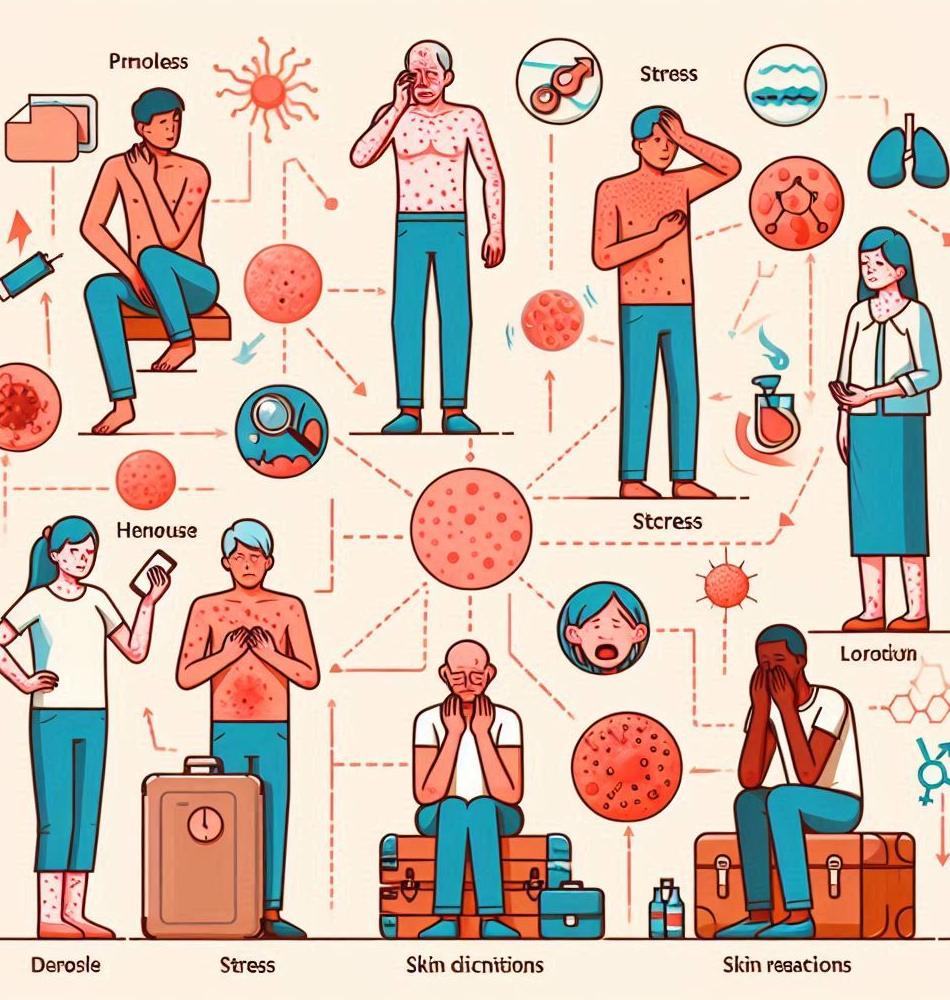Can Stress Cause Itchy Skin? Unveiling the Hidden Connection 🌱
Stress: It is that certain four-letter word that we hear echoed in our daily lives, often affecting us in ways we scarcely recognize. While most of us are aware of the mental and emotional toll that stress takes, few of us connect the dots to its effects on our skin. Yes, you heard it right. Stress can cause itchy skin. If you’ve ever felt that uncomfortable, incessant itch during a hectic day, this article is for you. Join us as we explore why stress leads to itchy skin, how you can manage it, and why it’s crucial to untangle the complex web of mind and body.
The Intricate Link Between Stress and Skin Health 🌼
Understanding how stress affects our skin starts with knowing the body’s stress response. When faced with a stressful situation, our bodies enter the fight-or-flight state. This evolutionary response is crucial for survival, as it floods the body with hormones like adrenaline and cortisol. Unfortunately, this heightened state of alert can wreak havoc on our skin.
How Does Stress Lead to Itchy Skin? 🌊
The link between stress and itchy skin can be explained through several interconnected mechanisms:
- Inflammation: Stress triggers inflammation by releasing cytokines, causing various skin conditions like eczema and psoriasis to flare up, leading to itchiness.
- Hormonal Imbalance: Elevated cortisol levels can disrupt the skin's natural barrier, making it more prone to irritants and allergens.
- Nervous System Reaction: The body’s nervous system may become overactive, causing sensations like itching to become heightened.
- Scratching and Irritation: Stress often leads to repetitive scratching, which can worsen the situation and create a vicious cycle.
Common Skin Conditions Linked to Stress 🌺
There are various skin conditions that can result from or be aggravated by stress. Here are some of the most common:
- Eczema: Characterized by red, itchy patches on the skin, stress can exacerbate symptoms.
- Psoriasis: A chronic autoimmune condition that can flare with emotional distress.
- Hives: Stress may trigger outbreaks of hives that cause intense itching.
- Alopecia: Stress is often cited as a factor in sudden hair loss.
Recognizing the Symptoms of Stress-Induced Itchy Skin 🌿
Are you wondering if your itchy skin could be stress-induced? Here’s what to look for:
Physical Signs of Stress-Induced Itchy Skin 🌼
Pay attention to these signs:
- Dryness and Scaling: Skin that appears dry may be a symptom of stress.
- Flaky Patches: Areas that are commonly scratched can develop inflammation.
- Redness and Swelling: These are indicators of inflammation and should not be ignored.
Behavioral Indicators of Stress 🌬️
It is equally important to recognize behavioral signs of stress that may impact your skin:
- Increased Scratching: Frequent scratching can worsen itchiness.
- Restlessness or Anxiety: A constant sense of unease could also trigger skin reactions.
Practical Tips for Managing Stress-Related Itchy Skin 🌳
Fortunately, you can adopt several strategies to help ease both stress and the associated itchy skin. Here are some effective tips:
Stress Management Techniques 🌈
- Meditation: Engaging in daily mindfulness meditation can help lower stress levels.
- Exercise: Regular physical activity releases endorphins, improving your mood and skin health.
- Deep Breathing: Simple deep breathing exercises can significantly reduce anxiety.
Skin Care Tips for Itchy Skin 🌊
Alongside stress management, consider these skincare tips:
- Moisturizers: Use fragrance-free and hypoallergenic moisturizers to soothe irritated skin.
- Cool Compresses: Applying cool compresses can provide immediate relief from itchiness.
- Gentle Cleansers: Opt for gentle, non-irritating cleansers to avoid exacerbating the problem.
When to Seek Professional Help 🌟
While it’s always wise to try self-care methods, there are times when visiting a dermatologist or professional is necessary. Seek help if:
- You experience severe or persistent itchiness that interferes with daily activities.
- Over-the-counter creams do not alleviate your symptoms.
- Your skin develops blisters, open wounds, or signs of infection.
Frequently Asked Questions ❓
- Can anxiety trigger skin conditions?
- What types of creams can help relieve stress-induced itching?
- How long does it take for stress to affect the skin?
- Are there any holistic treatments for managing stress-related itchiness?
- Is it possible to develop sudden allergies due to stress?
Conclusion: Embrace Your Skin and Mind 🔍
In summary, the relationship between stress and itchy skin is real and complex. As you come to grips with this multifaceted issue, remember that awareness is the first step toward healing. Addressing stress through mindfulness, exercise, and proper skincare can dramatically improve both your mental state and the health of your skin. Your skin reflects what is happening inside, so embrace the journey of self-discovery and care. When we understand the connection between mind and body, we become empowered to nurture both.







